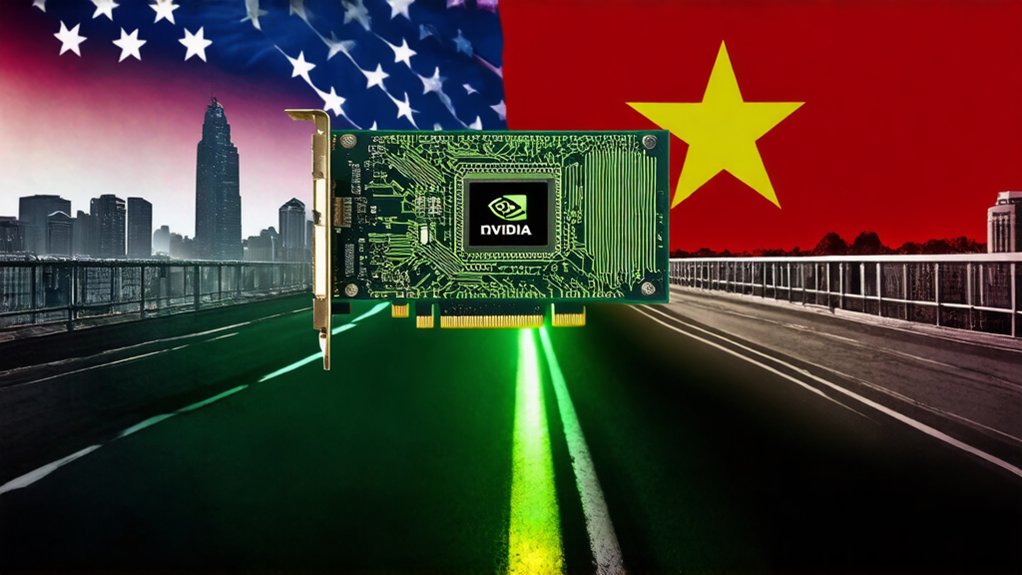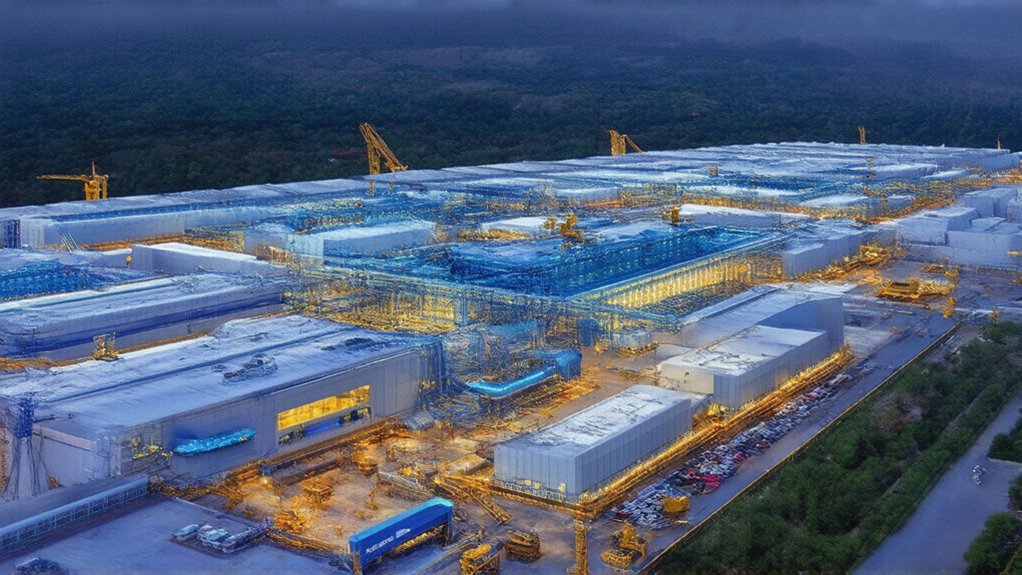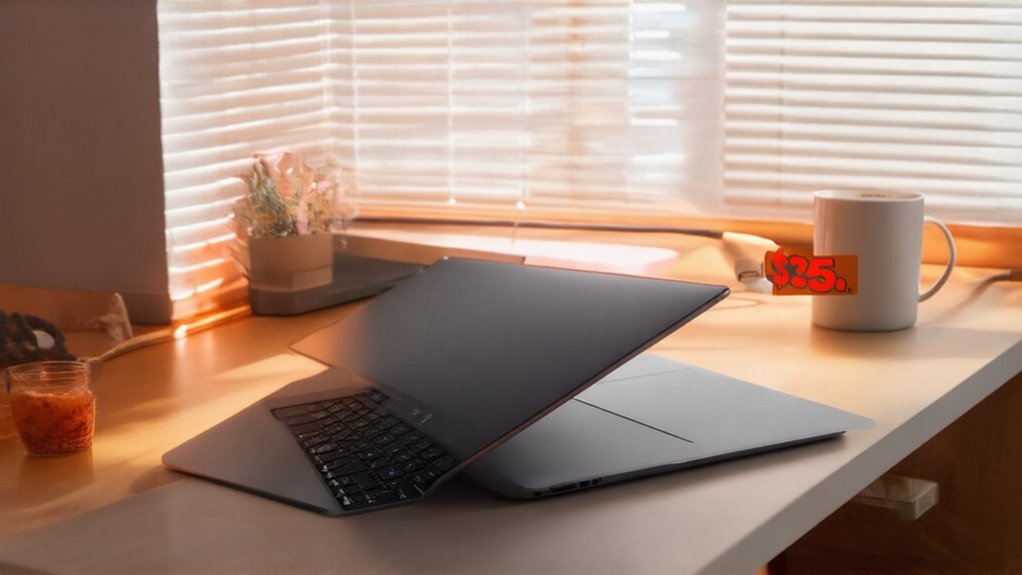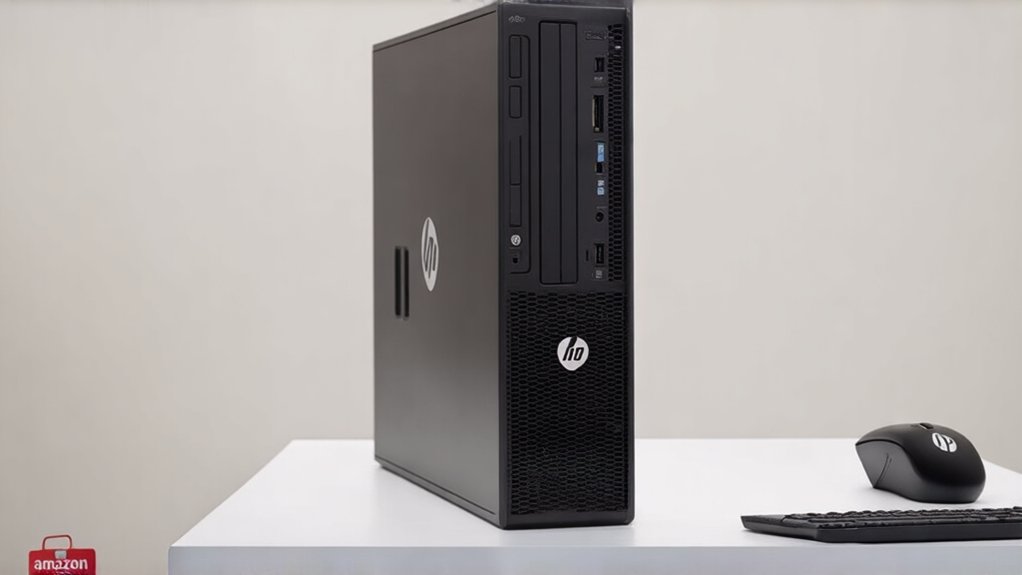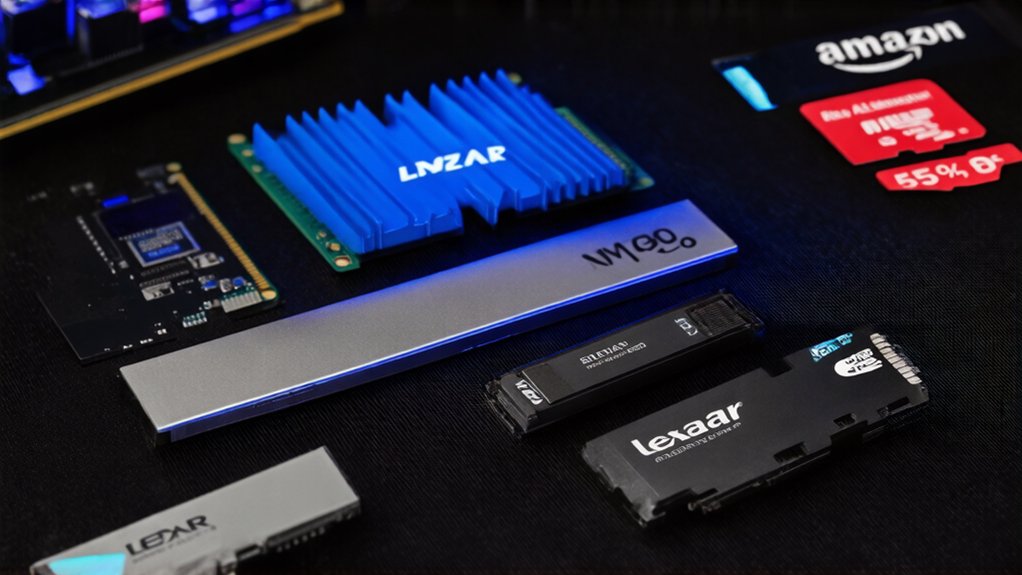Maneuvering a geopolitical minefield, Nvidia finds itself in an increasingly precarious dance between U.S. export controls and its lucrative Chinese market. CEO Jensen Huang isn’t backing down. Nope. He’s doubled down on China, calling it a “very important market” and making not one but two visits to Beijing this year. Talk about commitment.
Nvidia’s CEO dances through geopolitical landmines, refusing to abandon China despite mounting U.S. pressure.
The stakes are massive. China has historically been a cash cow for Nvidia, especially in the data center segment where tech giants like Tencent and ByteDance gobbled up AI chips like candy.
But Uncle Sam had other ideas. Citing national security concerns, Washington slapped export controls on Nvidia’s advanced AI chips—first the A100 and H100, then their China-specific alternatives, the A800 and H800.
Did Nvidia fold? Not a chance. They pivoted faster than a politician during election season, creating the H20, L20, and L2 chips specifically for the Chinese market.
But even these faced new hurdles when the U.S. required export licenses for the H20, a move that’s costing Nvidia about $5.5 billion in Q1 FY2026. Ouch.
During his China visits, Huang met with Vice Premier He Lifeng and other officials, promising to “unswervingly” serve the Chinese market.
Meanwhile, Nvidia engineers are reportedly already working on a China-friendly version of their Blackwell series—tentatively called “B20.” This news comes as Nvidia’s data center revenue from China has dropped from 26% to 17% due to U.S. regulations. Talk about hedging your bets.
Wall Street noticed. Nvidia’s stock took hits as restrictions tightened, with analysts warning China business could drop to nearly zero with the latest H20 rules.
Yet Nvidia remains the dominant player in China’s AI chip market—for now.
This high-wire act continues as Nvidia balances deepening ties with Washington—including a $500 billion U.S. investment—while reassuring Beijing of its long-term commitment.
During his recent Beijing visit, Huang met with Ren Hongbin and emphasized China’s market importance while state-run CCTV reported on Nvidia’s commitment to cooperation with the country.
It’s capitalism’s version of playing both sides against the middle. And so far, Huang’s making it work.
